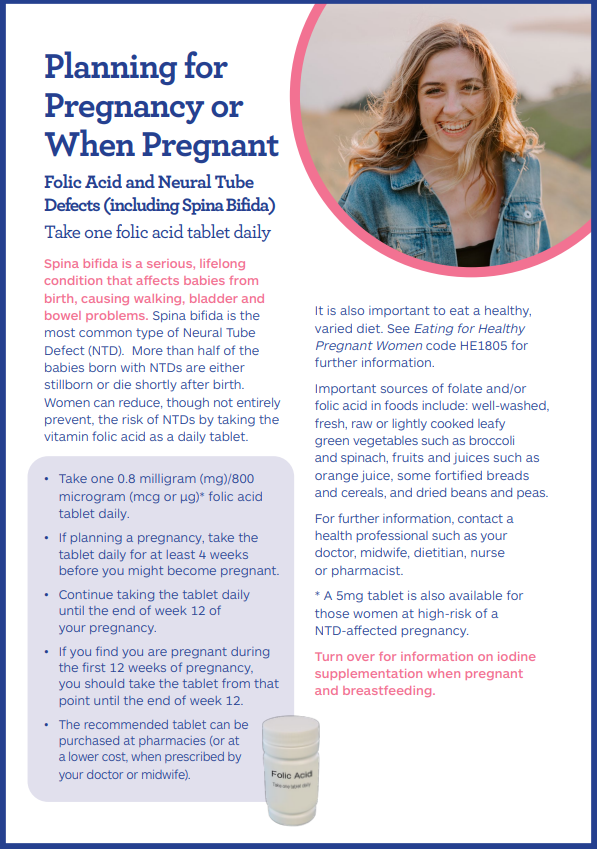Folic acid is the man-made (synthetic) form of folate, a B vitamin that is important for the formation of red blood cells and producing and maintaining new cells in your body. Most people get enough folate naturally from a healthy, balanced diet. However for some people, folate from the diet is not enough and folic acid tablets are needed.
- In pregnancy: Folic acid is used by pregnant women or women who are planning a pregnancy, to decrease the chance of spina bifida and other neural tube defects in the baby. It is best to start taking folic acid before conception and continue until week 12 of pregnancy. If the pregnancy is unplanned, start taking folic acid as soon as you know you are pregnant. Read more about folic acid/folate in pregnancy.
- For anaemia: Folic acid is used to treat or prevent some types of anaemia caused by folate deficiency by increasing the production of red blood cells. Check with your doctor first before taking folic acid to make sure it is right for you.
- To prevent side effects: For people who are taking methotrexate, folic acid is used to reduce some side effects caused by reduced folate, such as mouth ulcers.









